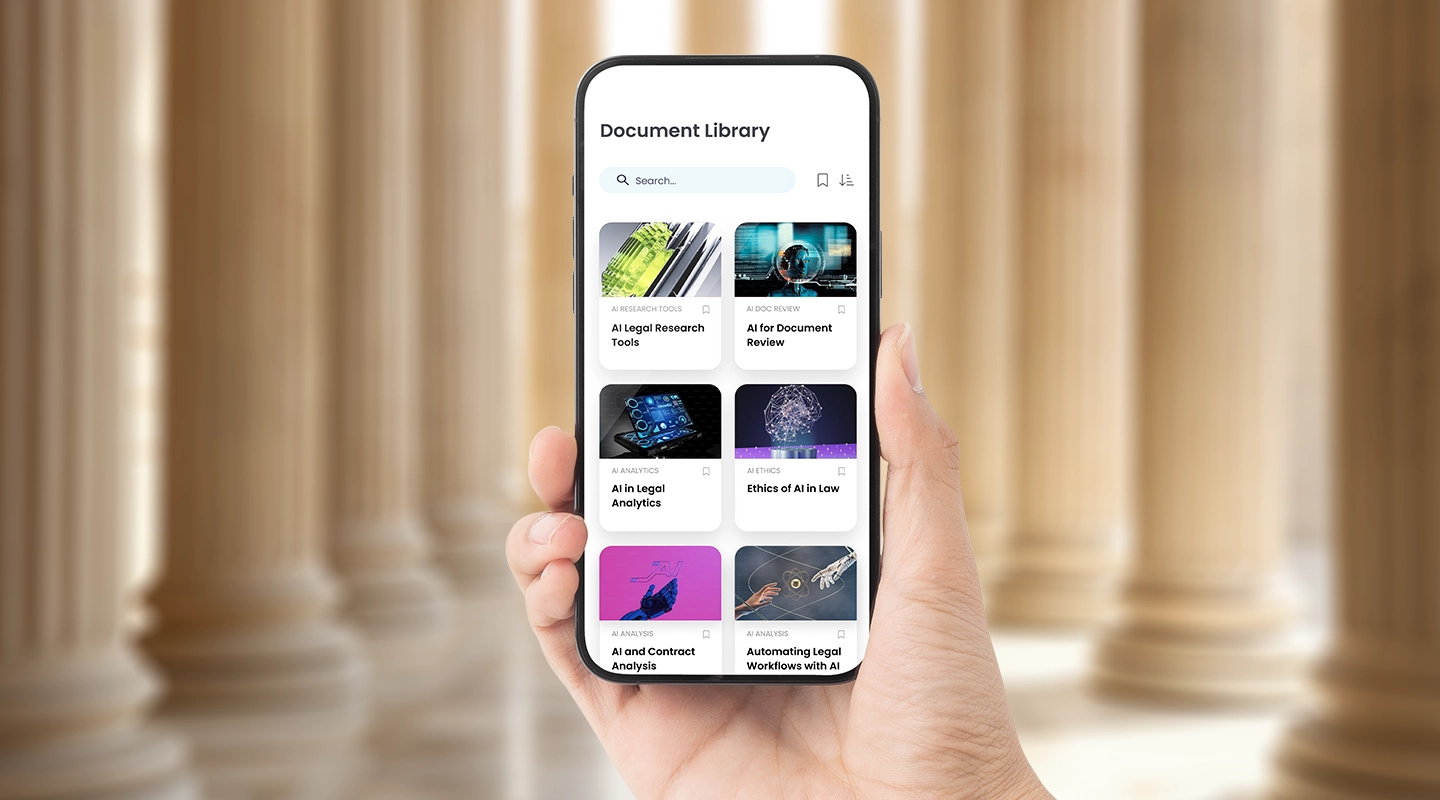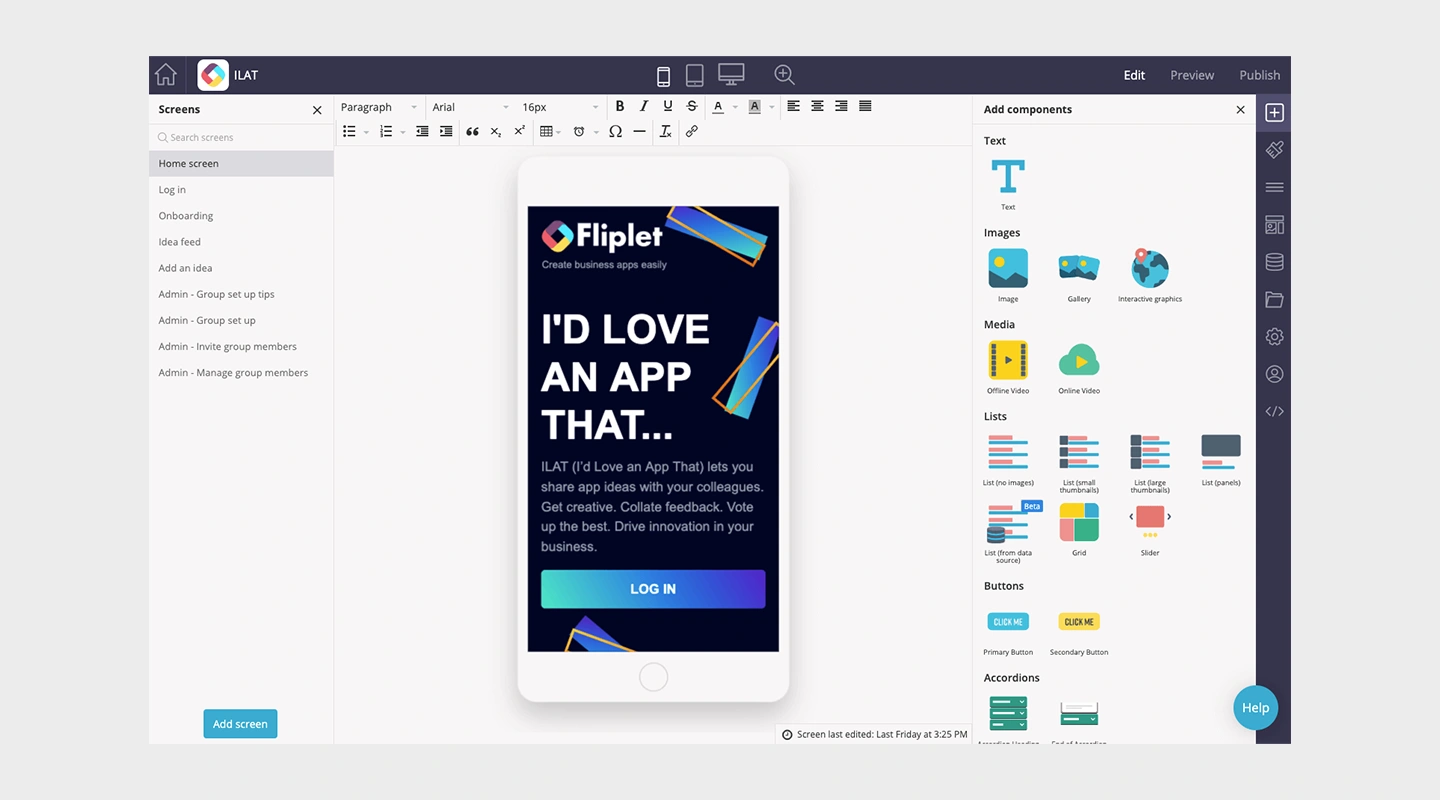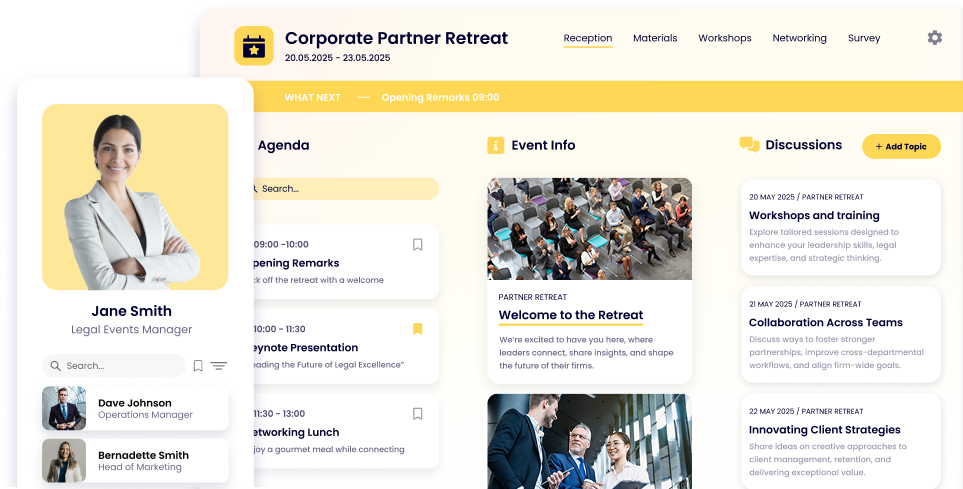AI for Law Firms: Tools, Strategies, and Future Trends

Lisa Broom | Head of Marketing

When you look around today, you can see every industry is seeing a proliferation of AI tools. The legal profession is no different. Now, there are a seemingly endless selection of AI for law firms.
As legal professionals grapple with increasing demands for efficiency and accuracy, AI is proving a powerful ally. But with all these AI tools for law firms, the question remains:
What are the best AI tools for law firms?
In this article, we’ll tell you the exact tools to consider for your firm. We’ll also explore why AI is becoming indispensable for law firms, the tools making waves in the industry, and what the future holds for AI in legal practices.
Key Takeaways
- AI for law firms is revolutionizing the legal profession by enhancing efficiency, accuracy, and decision-making.
- The top applications of AI tools for law firms include legal research, document review, and predictive analytics.
- There are ethical risks to navigate if attorneys want to ensure responsible use, leading to a growing field of AI policy for law firms.
- Fliplet offers AI tools for law firms that are trusted by many lawyers to optimize their operations.
What is Artificial Intelligence for Law Firms?
Artificial Intelligence (AI) refers to the development of computer systems capable of performing tasks that typically require human intelligence. These tasks include reasoning, learning, problem-solving, perception, and language understanding.
For law firms, AI is revolutionizing the way legal services are delivered by enabling machines to simulate human intelligence in a variety of legal processes. AI is employed to automate routine tasks, analyze large volumes of data, and generate insights that were previously beyond reach.
In the context of legal operations, AI tools for law firms assist in automating time-consuming tasks such as legal research, document review, and contract analysis, allowing lawyers to focus on more strategic aspects of their work. The best AI tools for law firms not only improve operational efficiency but also enhance decision-making by providing data-driven insights.
Applications of AI in the Legal Profession
AI’s influence on the legal profession is expansive, with its applications transforming various aspects of legal work. Here’s a closer look at how AI is making a difference in law firms today:
Top 10 Ways Lawyers Are Leveraging AI

- Legal Research: AI-powered tools like ROSS Intelligence and Casetext allow lawyers to conduct more comprehensive and faster legal research by analyzing vast databases of case law, statutes, and regulations.
- Document Review: AI streamlines the document review process, enabling faster identification of relevant information and reducing the time spent on tedious tasks.
- Contract Analysis: AI tools can automatically review and analyze contracts, highlighting potential issues and ensuring compliance with legal standards.
- Predictive Analytics: AI can predict the outcomes of legal cases based on historical data, helping lawyers make informed decisions and strategize effectively.
- Client Communication: Chatbots and virtual assistants powered by AI handle routine client queries, freeing up time for lawyers to focus on more complex matters.
- Due Diligence: AI assists in the due diligence process by rapidly analyzing large volumes of documents and identifying risks, ensuring thorough and efficient evaluations.
- Billing and Time Management: AI tools can track billable hours and manage invoices more accurately, reducing errors and ensuring timely payments.
- Litigation Support: AI aids in the discovery process, organizing and retrieving relevant documents more efficiently during litigation.
- Risk Management: AI assesses risks by analyzing patterns in legal data, helping law firms mitigate potential issues before they escalate.
- SEO and Content Creation: AI tools assist law firms in optimizing their online presence by enhancing SEO strategies and even generating content tailored to specific audiences.
Statistics: The Percentage of Lawyers Using AI Today

The adoption of AI in the legal field is rapidly increasing. Below are a few eye-opening statistics showing the field today.
- AI adoption depends on the size of the law firm. (Source)
- 55% of large firms use AI
- 38% of medium firms use AI
- 20% of small firms use AI
- 73% of lawyers plan to integrate Generative AI (like ChatGPT) into their work within the next year. (Source)
Best AI Tools for Law Firms
When it comes to selecting AI tools for your law firm, it’s essential to choose solutions that not only meet your immediate needs but also offer scalability and reliability for future growth. These solutions for lawyers and attorney’s staff
Here’s a look at some of the best AI tools currently available for law firms:
AI-Powered Legal Research Tools

Legal research is a fundamental part of legal practice, and AI is revolutionizing this area by making research faster, more efficient, and more accurate. Here are some top AI-powered tools that are leading the way:
- Fliplet: When it comes to legal research, Fliplet allows law firms to build apps for their attorneys to easily consume legal content with the help of AI-powered search. Using Fliplet’s Learning Solution, law firms can add important content like research papers or cases into a document library. Lawyers can access the app and search for the best content using AI, getting better and faster response.
- Casetext: Casetext leverages AI and natural language processing to deliver precise legal research results. It allows lawyers to search through millions of cases, statutes, and legal documents swiftly, providing relevant information in a fraction of the time it would take manually. Casetext’s AI-driven search capabilities help legal professionals find precedents and case law with greater accuracy, making it an indispensable tool for any law firm.
- ROSS Intelligence: Known for its intuitive interface and powerful AI algorithms, ROSS Intelligence is another excellent tool for legal research. It allows attorneys to pose questions in plain English and receive comprehensive answers drawn from a vast database of legal texts. This tool helps law firms save time and improve the accuracy of their legal research, making it a popular choice among legal professionals.
Streamlining Document Review with AI

Document review is one of the most time-consuming tasks in legal practice, but AI is changing the game by automating and accelerating this process. The following tools are leaders in AI-driven document review:
- Fliplet: With Fliplet, law firms can create custom workflows that automate everything from document generation to review. The platform’s AI capabilities allow for the creation of tools that can streamline things like NDA creation and review. For example, if you’d like to find someone to review your intellectually property document then you’d be able to easily use our AI search to find the best person in your law firm. This level of automation helps law firms save time, reduce errors, and increase overall productivity.
- Luminance: Luminance uses advanced machine learning to assist with document review, due diligence, and contract analysis. Its AI can quickly identify relevant information, flag anomalies, and highlight potential risks within large volumes of documents. This tool is particularly valuable for law firms dealing with extensive document review tasks, such as mergers and acquisitions or litigation support.
- Kira Systems: Kira Systems is another powerful AI tool that automates document review. It is designed to identify, extract, and analyze key clauses and data points from contracts and other legal documents. By using Kira, law firms can significantly reduce the time and effort required for document review, enabling legal teams to focus on more strategic work.
Navigating the Ethical Risks of AI in Legal Practice
While AI offers numerous benefits, it also presents ethical challenges that law firms must address to ensure responsible use. Fliplet offers solutions for lawyers that give you the power to use AI while still staying deeply committed to ethical legal practice. Below are some considerations you should consider whenever choosing AI for law firms.
Industry Standards for Ethical AI Use in Law
The legal profession is governed by strict ethical standards, and the use of AI must align with these principles.
The bar associations in many states have already sent out official statements on the use of GenAI tools. This summer, the American Bar Association (ABA) also made an official statement (PDF) covering their concerns on the ethics of AI.
Summarizing their findings, the ABA says the main risks with GenAI tools are:
- Inaccurate Output: GenAI tools can produce unreliable or inaccurate results due to limitations in the quality, breadth, and sources of the data they are trained on. They may also “hallucinate,” creating plausible but entirely false responses.
- Confidentiality Risks: Using GenAI tools could lead to the improper disclosure of client information. Self-learning GenAI tools, in particular, may inadvertently reveal sensitive information to others within or outside the firm.
- Competency Issues: Lawyers must have a reasonable understanding of the capabilities and limitations of GenAI tools. Uncritical reliance on these tools can result in violations of the duty to provide competent legal representation.
- Supervision: Lawyers have a responsibility to ensure that other lawyers and non-lawyers within the firm use GenAI tools in a manner that complies with professional ethical standards.
- Ethical Duties in Litigation: There is a risk of submitting false or misleading information generated by GenAI tools in court proceedings, which could violate ethical duties of candor toward the tribunal.
- Reasonable Fees: Lawyers must ensure that the fees they charge for using GenAI tools are reasonable and reflect the actual time spent and the tool’s efficiency.
Best Practices for Mitigating Ethical Risks
To mitigate ethical risks, AI for law firms should be used only within clear guidelines for its use. There should be regular audits of AI tools for law firms, and staff should have ongoing training to fully understand the ethical implications of this technology. By staying vigilant and up-to-date on new guidelines, law firms can harness the power of AI while upholding their ethical obligations.
The Future of AI in Law Firms
The future of AI in the legal industry is bright, with advancements in technology continually expanding the possibilities for AI applications. As AI tools become more sophisticated, law firms will increasingly rely on them to handle complex tasks, streamline operations, and enhance client service.
Selecting the Right AI-powered Software
We’ve compiled a list of top AI-driven legal tools that many law firms rely on to boost their productivity and deliver better outcomes for their clients. These solutions are designed to handle the most demanding tasks, providing the accuracy, efficiency, and scalability that modern law firms require.
Top AI-Driven Legal Tools You Can Rely On
- Fliplet: Fliplet stands out as a versatile platform that enables law firms to build custom AI tools tailored to their specific needs. Whether you’re looking to streamline document management, automate routine tasks, or create client-facing apps, Fliplet’s flexibility makes it a top choice.
The platform is known for its ease of use, allowing law firms to quickly implement and scale AI-driven solutions without requiring extensive technical expertise. Fliplet’s AI tools are designed to be intuitive, making it easier for legal teams to adopt and integrate them into their daily workflows.
Here’s how each of Fliplet’s AI features could be utilized by a law firm:
- AI-Driven Content Generation: A law firm can use this tool to create tailored client communications, such as personalized legal updates or newsletters, based on specific client needs or cases.
- AI-Powered Content Summarization: This feature could help lawyers quickly summarize lengthy legal documents, case law, or contracts, making it easier to review and extract key information.
- AI-Powered Chat and Search: Implement this tool to enhance internal knowledge management systems, allowing lawyers and staff to quickly search through vast amounts of legal data or past cases. It could also be used for client-facing chatbots that provide instant legal information or case updates.

- Clio: Clio is a comprehensive legal management software that integrates AI to enhance various aspects of legal practice, from case management to billing. With Clio, law firms can automate time-consuming tasks, manage client communications more effectively, and keep track of billable hours with precision.The platform’s AI features include predictive analytics that help lawyers make data-driven decisions, ensuring that firms stay on top of their cases and client needs. Clio’s reputation for reliability and user-friendly design makes it a trusted solution for law firms of all sizes.
- Luminance: Luminance is a leading AI tool for document review and analysis. Using advanced machine learning algorithms, Luminance can sift through large volumes of legal documents, identifying key information and potential risks with remarkable speed and accuracy.This tool is particularly valuable for tasks such as due diligence, contract review, and compliance checks. Luminance’s ability to learn and adapt to different legal contexts makes it an essential tool for law firms looking to improve the efficiency of their document review processes.
- Casetext: Casetext revolutionizes legal research by leveraging AI to deliver precise and relevant results faster than traditional methods. Powered by natural language processing, Casetext allows lawyers to search through millions of cases, statutes, and regulations, providing them with the information they need in a fraction of the time.The platform’s AI-driven research tools help legal professionals find precedents and relevant case law with greater accuracy, making it a trusted resource for firms that require comprehensive legal research capabilities.
- LawGeex: LawGeex is an AI-powered contract review platform that automates the process of reviewing and approving contracts. By comparing contracts against a firm’s predefined legal standards, LawGeex ensures that every contract meets the necessary compliance requirements.The platform can identify potential issues, suggest revisions, and provide insights into the legal language, making it easier for law firms to manage their contract workflows. LawGeex’s ability to reduce the time and effort required for contract review makes it a valuable tool for any law firm aiming to streamline its operations.
How to Choose the Best AI Tool for Your Law Firm
Selecting the right AI tool for your law firm requires careful consideration of your firm’s specific needs, goals, and resources. Here are some tips to help you make the best choice:
- Assess Your Needs: Identify the areas where AI can provide the most value, such as legal research, document review, or client communication.
- Evaluate Features: Compare the features of different AI tools to find one that aligns with your firm’s requirements.
- Consider Integration: Ensure that the AI tool can seamlessly integrate with your existing systems and processes.
- Prioritize Security: Choose AI tools that prioritize data security and confidentiality, especially given the sensitive nature of legal work.
- Look for Scalability: Opt for AI solutions that can grow with your firm, offering flexibility as your needs evolve.
Discover How Fliplet Enables Your Firm to Build AI Legal Tools

At Fliplet, we understand the unique challenges that law firms face, and we’re here to help. Our platform empowers law firms to create custom AI tools that enhance efficiency and improve client service. With Fliplet, you can build AI-driven legal solutions that are tailored to your firm’s specific needs, ensuring you stay ahead of the competition.
Why Law Firms Love Using Fliplet: Our clients appreciate the ease of use, flexibility, and scalability that Fliplet offers. Whether you’re looking to streamline document review, enhance legal research, or improve client communication, Fliplet provides the tools you need to succeed. Read more about our AI solutions for law firms here.
Are you ready to start building the ultimate AI-powered tools for your law firm, all without using a single line of code?
Check out Fliplet and learn how this one platform can do it all.
FAQs
What types of AI software systems do law firms use?
Law firms use a variety of AI software systems, including legal research tools, document review platforms, contract analysis software, and AI-powered chatbots.
What are the most popular legal AI tools?
Some of the most popular legal AI tools include Casetext for legal research, Luminance for document review, and LawGeex for contract analysis.
How has AI changed the legal profession?
AI has significantly changed the legal profession by automating routine tasks, enhancing the accuracy of legal research, and providing predictive insights that improve decision-making.
How can AI benefit your legal department?
AI can benefit your legal department by increasing efficiency, reducing costs, and improving the quality of legal services provided to clients.
Should law firms use AI for content creation?
AI can be a valuable tool for content creation, helping law firms generate SEO-optimized content quickly and efficiently. However, it’s important to ensure that the content aligns with your firm’s voice and standards.






